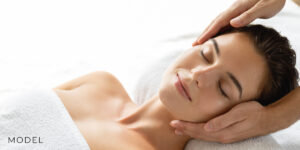 Laser skin resurfacing is a popular, non-invasive way to address common concerns regarding the face. From acne scars to fine lines and wrinkles, there are a number of normal issues that laser treatment can conceal or correct.
Laser skin resurfacing is a popular, non-invasive way to address common concerns regarding the face. From acne scars to fine lines and wrinkles, there are a number of normal issues that laser treatment can conceal or correct.
Before scheduling an appointment for laser skin resurfacing, however, it is important to understand that not all laser therapies are created equal. Different lasers vary significantly in their power, their intensity, and their overall effect on the skin. The laser treatment that works for one patient may be a poor choice for the next.
The best way to determine which type of laser treatment is right for you is to meet with a plastic surgeon or a skincare specialist. They can assess your skin, consider your needs and goals, and make an informed recommendation that will ensure a safe, successful procedure.
What is Laser Skin Resurfacing?
Laser skin resurfacing refers to different applications of laser technology to reduce wrinkles, age spots, acne scars, and other common skin problems. This type of laser treatment can provide a smoother complexion and a lighter skin tone.
The specific mechanisms for achieving these results depend on the laser. In particular, it is important to know the difference between an ablative and non-ablative laser treatment. The main distinction here is that an ablative laser will actually destroy your outermost layer of skin cells, while a non-ablative laser heats up the underlying layer, stimulating collagen production without the need to destroy any of your outer skin.
Ablative laser resurfacing is more aggressive and is typically the best option for addressing more serious skin problems. By contrast, the milder non-ablative laser may be recommended for making more modest improvements to skin texture and tone.
Are You a Good Candidate for Laser Treatment?
No matter which laser treatment you think best aligns with your needs, an important step in the process is meeting with your provider to ensure you are a good candidate for a safe, successful procedure.
Generally speaking, laser skin treatment is not recommended for patients who have active acne breakouts or who are prone to frequent cold sores. It is recommended that patients seek treatment to get these conditions under control before they pursue laser therapy.
Laser treatment is also not the best option for patients who have a significant skin laxity issue. While laser treatments can correct some mild sagginess, they are not potent enough to address more extreme deficits of skin elasticity.
Conditions That Can Be Treated Through Laser Skin Resurfacing
So which conditions can be treated via laser skin resurfacing? Laser treatment can be a useful tool for patients who hope to achieve any of the following outcomes:
- Removal of wrinkles, crow’s feet, and fine lines around the eyes, the forehead, or the mouth
- Reduction in the visibility of shallow acne scars
- Reduction in the size of skin pores
- Elimination of sunspots and “age spots”
- Improvement to slightly saggy skin
- Overall improvement in the tone, texture, and vibrancy of the skin
Factors to Consider When Choosing Laser Treatment
When you meet with your plastic surgeon or skincare specialist, you will have a chance to articulate your goals, ask any questions you might have, and work together with your provider to make a fully informed decision regarding the type of laser treatment.
Your provider will recommend a specific type of laser skin resurfacing based on a number of different factors. For example:
Your Skin Concerns
As noted above, laser skin resurfacing can address a wide range of issues; however, different types of lasers may offer slightly different applications and results. Most lasers will be useful for correcting uneven skin texture or for smoothing over small wrinkles, but only some lasers will help remove sunspots. You will want to be very clear in discussing your skincare concerns and goals with your provider.
Your Desired Results
As your provider considers the type of issues you are hoping to correct, they will also weigh the level of results you wish to achieve and the intensity of treatment those results will require. For example, patients who want a more modest, subtle change may be well off with a non-ablative laser, while those seeking more dramatic results may need to go with the ablative approach.
Your Skin Tone
Another critical factor is your skin tone. Historically, one of the limitations of laser therapy has been that it is more accessible to those with lighter skin tones than to those with darker complexions. The reason for this is a medical one: Certain types of lasers can cause hyperpigmentation in darker skin tones. Thankfully, laser technology has advanced considerably, and there are now plenty of laser treatments to address all skin types. Your provider will no doubt consider your skin type before recommending a particular kind of laser.
Laser Skin Resurfacing with the Sciton Erbium
If you decide to get laser skin resurfacing performed by Dr. Sanders, you can anticipate a full evaluation and consultation, addressing all of the factors mentioned above. From there, Dr. Sanders will let you know more about whether you qualify for treatment with the Sciton Erbium laser, which is Dr. Sanders’ treatment of choice.
Dr. Sanders is partial to the Sciton Erbium because it offers gentle-yet-powerful facial rejuvenation, removing outer skin cells through an ablative process while also stimulating the development of fresh collagen, resulting in the development of healthy new skin. When compared to other ablative lasers, the Sciton Erbium does not do much heating or burning, meaning you will not experience the same redness or swelling associated with other types of laser therapy. There is also a relatively swift recovery time, and most patients are completely back to normal within a week to 10 days. Either general or deep sedation anesthesia is provided for patients, ensuring the laser skin resurfacing process is comfortable and pain-free.
The Sciton Erbium laser may be a good option for anyone looking to address large pores, brown spots, acne, or other blemishes. To find out more, we recommend making an appointment with Dr. Sanders, who will be happy to spend some time talking with you and helping you select the best form of laser treatment.





